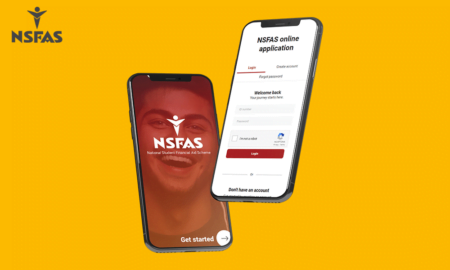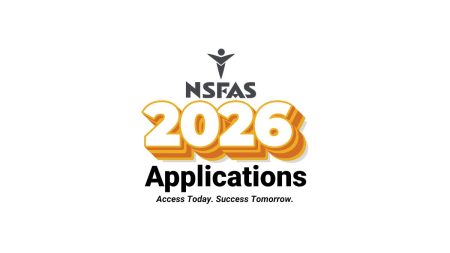Navigating the NSFAS (National Student Financial Aid Scheme) application process can be a challenging and overwhelming experience, especially for students who have their applications rejected due to missing documentation, such as proof of income. Whether you’re a current student trying to appeal a rejected application or a prospective student who fears missing out on crucial funding due to incomplete paperwork, you’re not alone. Many students face similar frustrations when dealing with financial aid, especially when required documentation, like proof of income, is unavailable.
But don’t worry – you can still appeal! In this article, we’ll walk you through NSFAS’ policies on appeals without proof of income, offering practical, step-by-step advice and tips to improve your chances of success. Whether you’re submitting an appeal on your own or with the help of a parent or guardian, this guide will help you understand the appeal process and ensure that you meet all the necessary requirements.
Understanding NSFAS and Its Appeal Process
NSFAS is a government initiative designed to help financially disadvantaged South African students attend tertiary institutions, including universities and TVET colleges. The funding covers various aspects of student life, including tuition, accommodation, and living expenses.
However, the application process is highly structured and requires specific documents to assess a student’s eligibility. One key requirement is proof of income, which helps NSFAS assess whether an applicant qualifies based on their family’s financial situation. Without this documentation, your application may be rejected.
What Happens if Your Application is Rejected Due to Missing Proof of Income?
If your application for NSFAS funding is rejected due to missing income documentation, don’t panic. The good news is that you can appeal this decision. NSFAS provides a formal appeals process, which allows students to contest their rejection and provide additional or alternative documentation that may support their case.
NSFAS understands that students might not always have the exact documentation requested, especially in cases of informal employment or family financial challenges. That’s why the appeals process exists, offering an opportunity for students to submit explanations or alternative proof.
NSFAS Appeal Process: Step-by-Step Guide
Here’s a detailed guide on how to appeal if your NSFAS application was rejected due to missing proof of income. Follow these steps carefully to improve your chances of a successful appeal.
Step 1: Check Your Application Status
Before you appeal, it’s important to confirm the reason for your rejection. You can check the status of your NSFAS application through the NSFAS website or the MyNSFAS portal. Once logged in, you’ll be able to view your application’s progress and the specific reason for the rejection.
If the reason for the rejection is due to missing income proof, you’ll know exactly what you need to address during the appeal process.
Step 2: Understand NSFAS Appeal Guidelines
NSFAS has set guidelines for the appeals process, and it’s essential to familiarise yourself with these before submitting your appeal. These guidelines outline what documentation is required and the format in which it should be submitted. They also specify the deadlines for submitting appeals, so make sure you’re aware of these dates to avoid missing out on your chance.
Step 3: Gather Alternative Documentation
NSFAS is aware that students may not always have official proof of income. If you or your guardians are unable to provide formal payslips or tax records, you can still submit alternative forms of documentation. Some of the documents that NSFAS may accept include:
Affidavits: If your guardians or parents are self-employed or don’t have formal income documentation, they can submit an affidavit detailing their income and financial status. The affidavit must be sworn before a commissioner of oaths.
Bank Statements: If your family does not have formal proof of income, providing several months of bank statements may help demonstrate your household’s financial situation.
Letter from Employer: For informal workers, a letter from your guardian’s or parent’s employer may be accepted, confirming their income or the nature of their work.
Social Grants Documentation: If you or your family members receive social grants, providing proof of these payments can serve as an alternative form of income verification.
Step 4: Write a Detailed Appeal Letter
In addition to the necessary documents, NSFAS requires an appeal letter that explains why your initial application was incomplete or why you could not provide proof of income. In your letter, be honest and concise. Some points to include:
Explain the Circumstances: Clearly explain why you were unable to provide proof of income. For example, if your parents are self-employed or part-time workers, explain this situation.
Provide Additional Context: If your financial situation has changed since your initial application, include this information in your appeal letter. Provide any supporting evidence that shows your current financial need.
State Your Request Clearly: Be explicit in your letter about what you’re appealing. You are asking for a reconsideration of your application due to missing proof of income.
Step 5: Submit Your Appeal
Once you have gathered all the necessary documents and written your appeal letter, it’s time to submit your appeal. Follow the instructions on the NSFAS website or the MyNSFAS portal to submit your appeal. Ensure that all documents are uploaded in the required format, and double-check that nothing is missing.
NSFAS usually provides a specific section for appeals, and the portal allows you to track the progress of your appeal once submitted. Make sure to submit your appeal within the stipulated timeframe, as delays could result in your appeal being rejected.
Step 6: Await the Outcome of Your Appeal
After submitting your appeal, NSFAS will review your documentation and make a decision. This process may take several weeks, so it’s important to be patient during this time. NSFAS will notify you of their decision through the MyNSFAS portal or via email.
If your appeal is successful, your application will be reconsidered, and you will be notified about the next steps regarding your funding. If your appeal is unsuccessful, you may be given the opportunity to submit further documentation or clarify certain aspects of your case.
Practical Tips to Improve Your Appeal Success
While submitting your appeal may feel daunting, there are several steps you can take to improve your chances of success. Here are some practical tips:
Tip 1: Double-Check Your Documents
Before submitting your appeal, carefully review all the documents you are providing. Ensure that they are complete, clear, and legible. NSFAS may reject your appeal if the documentation is unclear or incomplete.
Tip 2: Stay Within the Appeal Deadline
NSFAS has strict deadlines for submitting appeals. Make sure you submit your appeal well before the deadline to ensure it’s processed on time. Late submissions may not be considered.
Tip 3: Seek Help from a Parent or Guardian
If you’re unsure about any aspect of the appeal process, consider seeking help from a parent or guardian. They can help you gather the necessary documentation and write your appeal letter. If they have experience with NSFAS applications, their guidance could be invaluable.
Tip 4: Keep Copies of Everything
Always keep copies of the documents you submit and the appeal letter you write. This way, if anything goes wrong or if you need to follow up on your appeal, you’ll have a record of what you submitted.
Tip 5: Be Honest
Be honest about why you couldn’t provide proof of income initially. NSFAS understands that not all families have formal documentation, so transparency is key.
Tip 6: Consider Special Consideration
If your family’s financial situation is particularly dire, consider requesting special consideration. This option may allow for a more flexible evaluation of your appeal, especially in cases of extreme hardship.
Read more: NSFAS 2026: Documents You Need Before Applying
Frequently Asked Questions (FAQs)
1. Can I appeal if I don’t have formal proof of income?
Yes, NSFAS allows appeals for missing income proof. You can submit alternative documentation such as affidavits, bank statements, or letters from employers.
2. How long does it take for NSFAS to process an appeal?
The processing time for appeals can vary but usually takes several weeks. You’ll be notified through the MyNSFAS portal or via email.
3. What if my appeal is rejected?
If your appeal is rejected, you can try submitting additional documentation or clarification. You may also contact NSFAS directly for further guidance.
4. Is there a deadline for submitting my appeal?
Yes, NSFAS has specific deadlines for appeals, which are usually communicated on the NSFAS website. Ensure that you submit your appeal before the deadline to be considered.
5. What if I miss the appeal deadline?
Missing the appeal deadline may result in your appeal being rejected. It’s important to stay informed about the deadlines and submit your appeal on time.
6. Can I appeal more than once for missing proof of income?
Yes, you can appeal more than once, but only if you have additional documentation or information that strengthens your case. Each appeal will be considered based on the new evidence you provide.
7. How can I contact NSFAS if I need help with my appeal?
You can contact NSFAS through their official customer care channels, including the NSFAS helpline, email support, or the online chat feature on the MyNSFAS portal. Be sure to include your NSFAS reference number when contacting them.
8. What happens if I don’t have a bank account to submit statements?
If you do not have a bank account, consider submitting alternative documents like affidavits or a letter from your employer. NSFAS understands that some students may not have traditional financial records, so alternative evidence can still be considered.
9. Can I appeal if my family’s income changed after the initial application?
Yes, you can submit an appeal if your family’s financial situation has changed. Make sure to include proof of this change, such as a letter from your employer, updated bank statements, or an affidavit explaining the new circumstances.
10. What is the special consideration process for NSFAS appeals?
Special consideration allows NSFAS to evaluate your case more flexibly if you are facing extreme financial hardship. If you believe you qualify for special consideration, include a detailed explanation of your situation and any supporting documents that highlight the urgency of your need.
Also check: Top Reasons NSFAS Applications Get Rejected (and How to Avoid Them)
Navigating the NSFAS appeal process without proof of income can feel overwhelming, but it is certainly possible to secure funding even if you’ve missed documentation. By understanding the NSFAS policies, gathering alternative documents, and following the appeal steps carefully, you can improve your chances of a successful outcome. Remember, your education is a priority, and NSFAS is there to support you – so don’t give up if you face setbacks in the application process.










